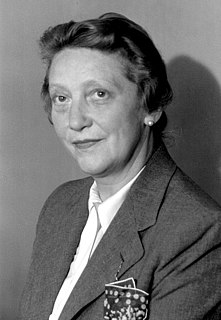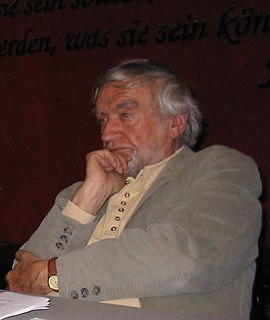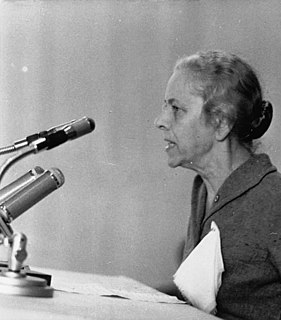Related Research Articles
Richard Plant was a gay Jewish emigre from Nazi Germany, first to Switzerland and then to the U.S., who became a professor at the City University of New York, where he taught German language and literature from 1947 to 1973. He authored an opera scenario as well a number of fictional and non-fictional works, notably The Pink Triangle: The Nazi War Against Homosexuals (1986).

Christiane Paul is a German film, television and stage actress.

Wladimir Kaminer is a Russian-born German short story writer, columnist and disc jockey of Jewish origin, the son of Viktor and Shanna Kaminer.

Christine Buchegger was an Austrian theater and television actress, born in Vienna, Austria.

Katharina "Käthe" Dorsch was a German stage and film actor.
Annemarie Esche was a German scholar of Burmese literature and linguistics. Following her studies of Burmese as a teacher of German in Burma at the cultural centre of the German Democratic Republikc in Yangon from 1955 to 1963, she later became professor at Humboldt University in Berlin.

The Theater des Westens is one of the most famous theatres for musicals and operettas in Berlin, Germany, located at Kantstraße 10–12 in Charlottenburg. It was founded in 1895 for plays. The present house was opened in 1896 and dedicated to opera and operetta. Enrico Caruso made his debut in Berlin here, and the Ballets Russes appeared with Anna Pavlova. In the 1930s it was run as the Volkstheater Berlin. After World War II it served as the temporary opera house of Berlin, the Städtische Oper. In 1961 it became the first theatre in Germany to show musicals. Since then it has become the "German equivalent of Broadway extravaganzas", putting on plays and musical comedies.
Reinhild Hoffmann is a German choreographer and dancer who is an important innovator in Tanztheater, along with Pina Bausch and Susanne Linke.

Marietta Piekenbrock is a German art curator, dramaturge, author and a cultural manager. Her projects combine theatre, dance, performances and music with cultural history, architecture and everyday life. As an artistic manager of the Cultural Capital of Europe RUHR.2010 and Istanbul.2010, and for the Ruhrtriennale 2012-14, she invited international artists and curators to collaborate with the local cultural participants and players on developing new artistic projects in areas of radical social change. Her programmes of events and initiatives made a strong case for sustainable cultural practice. Her 2012 series of events "No Education" promoted a new discourse on the relationship between art, children and education.
Alice Gurschner was an Austrian writer. She wrote largely under the masculine pen name Paul Althof.
Margot Elisabeth Ebert was a German actress, presenter, dancer, entertainer and writer.

Gerhard Zwerenz was a German writer and politician. From 1994 until 1998 he was a member of the Bundestag for the Party of Democratic Socialism (PDS).
Hans Hollmann was an Austrian-Swiss theatre director and actor. He also worked as a university lecturer and had a doctorate in jurisprudence. Despite having been born in Austria, for many years Hollmann lived with his family in Basel.

Mathilde Danegger was an Austrian stage and movie actress. Sources may also identify her by the pseudonym, Mathilde Leusch; Leusch is apparently a variant of her second husband's surname (Lesch).
Gisela Kraft was a German author and poet. She also undertook extensive work as a literary translator from Turkish to German.
Ingeborg Meyer-Rey was a German illustrator. She was one of the best known illustrators of children's books in the German Democratic Republic.
Waldtraut Lewin was a German writer, dramaturge and stage director.

Marguerite Julie Strauss, also known as Rita Matthias, was an actress and translator. Strauss began her acting career performing on the stage in New York City, as well as across Europe. Her theatrical connections led to a career as a translator, focusing on the works of European playwrights, the crime novels of Edgar Wallace, and the writings of Thomas Mann and his son Klaus Mann.

Anna Goldmann Hirschler-Forstenheim was an Austrian writer and poet.
Günther Rühle was a German theatre critic, book author and theatre manager. He directed the feuilleton (editorial/entertainment) sections of major newspapers and was regarded as an influential theatre critic, beginning in the 1960s. He managed the Schauspiel Frankfurt from 1985 to 1990. Rühle was a member of the PEN-Zentrum Deutschland. From 1993 to 1999, he was president of the Deutsche Akademie der Darstellenden Künste in Frankfurt. He published books about the history of theatre in Germany, and its criticism.
References
- ↑ Sigfried Schibli: Ein Grosser verabschiedet sich: Regisseur Hans Hollmann ist 89-jährig verstorben, bz – Zeitung für die Region Basel, 30 June 2022, retrieved 1 July 2022.
- ↑ C. Bernd Sucher (Herausgeber): Theaterlexikon. Autoren, Regisseure, Schauspieler, Dramaturgen, Bühnenbildner, Kritiker. Deutscher Taschenbuch Verlag, 2. Aufl., München 1999, S.668
- ↑ "Soeben ausgelesen: Schattenfrauen. Von Reinhild Solf". GZ Medien GmbH, Gießen (Gießener Zeitung). 6 January 2013. Retrieved 12 February 2016.
- ↑ "Solf, Reinhild". F.A. Herbig Verlagsbuchhandlung GmbH, München. Retrieved 12 February 2016.
- ↑ Paul Schorno (4 February 2013). "Ein Grosser des deutschsprachigen Theaters feiert seinen 80. Geburtstag". Basellandschaftliche Zeitung, Liestal. Retrieved 12 February 2016.
- ↑ Reinhild Solf (January 1987). Leberwurst, Käsebrot zwo, drei, vier. Ein deutsch-deutsches Märchen (Taschenbuch). An eye catching feature of the title is the spelling of "zwo", a widely used dialect version of the word "zwei", which is the German for "two.". Goldmann Verlag. ISBN 978-3-442-06773-2.
- ↑ Reinhild Solf (1 February 2012). Schattenfrauen. Langen - Mueller Verlag (Hardcover). ISBN 978-3-784-43298-4.
- ↑ "Reinhild Solf". Any opinions inferred from the website of Reinhild Solf's literary agent should self evidently not be evaluated uncritically. This source nevertheless includes a small amount of biographical information most of which merely corroborates information already gleaned from third-party sources, and it includes a photo-portrait of Reinhild Solf. Lars Schultze-Kossack i.A. Literarische Agentur Kossack GbR (Hamburg). Retrieved 13 February 2016.